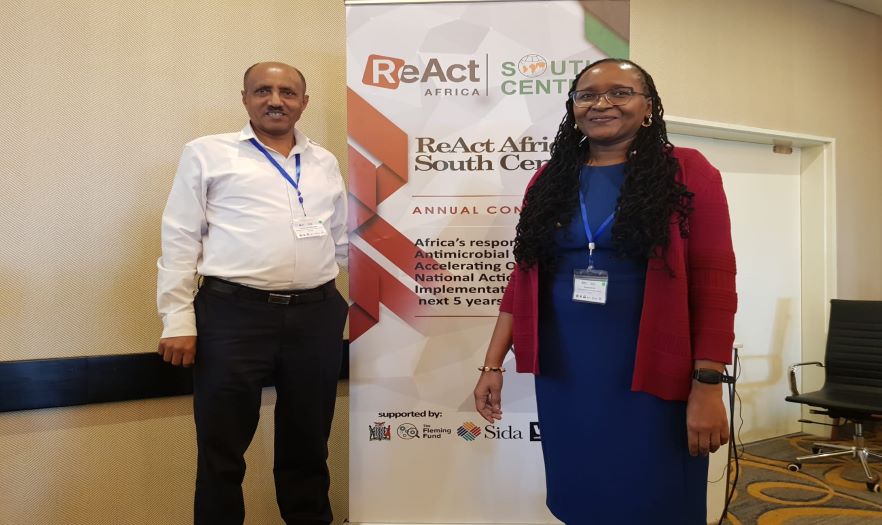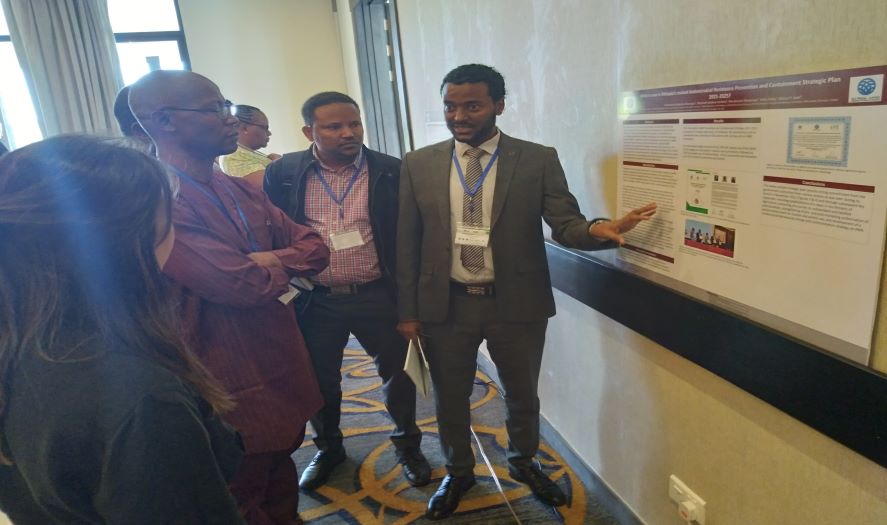MTaPS Teams at the ReAct and South Centre AMR Conference 2022
There is global consensus that the success of antimicrobial resistance (AMR) containment efforts hinges on a coordinated multisectoral approach; however, institutionalizing multisectoral coordination across sectors is an ongoing challenge. From July 25 to 27, 2022, ReAct Africa and South Centre hosted an annual conference, bringing together stakeholders of the human health, animal health, and environmental sectors from different African countries and intergovernmental agencies.
The forum was hosted in Lusaka, Zambia, and online under the theme “Africa’s response to antimicrobial resistance: accelerating One Health national action plans implementation for the next 5 years.” USAID MTaPS Ethiopia and Kenya teams participated in the conference, contributing to the conversation on Africa’s response to AMR to help accelerate the implementation of One Health national action plans at the country level.

MTaPS Ethiopia Senior Technical Advisor Workineh Getahun and MTaPS Kenya Country Director Ndinda Kusu at the conference
The MTaPS Ethiopia team and Ministry of Health representative participated in the conference. Their poster presentation focused on new developments in Ethiopia’s revised Antimicrobial Resistance Prevention and Containment Strategic Plan 2021–2025. The MTaPS Kenya Project Director also attended the conference, presenting “Africa’s response to AMR: accelerating One Health actions implementation for the next 5 years.”

Yidnekachew Degefaw of the Ministry of Health makes a presentation on the Ethiopia national AMR plan.
The main areas of focus highlighted as critical for effective AMR containment efforts include:
- Improving domestic commitment and political will to address AMR
- Importance of effective multisectoral strategies and collaboration
- Importance of data and economic analysis in promoting action by policymakers
- Need for surveillance and implementation to be context specific
- Public-private partnerships
- A need to invest more in research for a solution to AMR
- Identifying sustainable funding mechanism
The conference, which attracted participation from stakeholders in Africa and Asia, provided engagement and networking opportunities between MTaPS country teams and external stakeholders such as FAO, the Fleming Fund, and the Ecumenical Pharmaceutical Network.